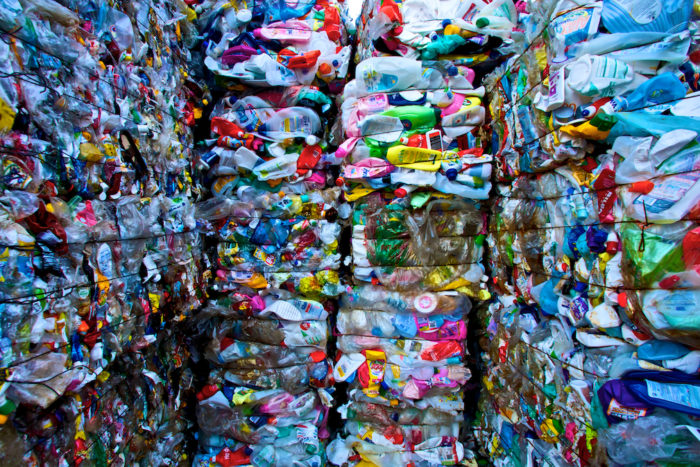
Image Credit: MBEO via Flickr
Recycling plastic, paper, and metal is fundamental to a sustainable lifestyle, and for years China has given U.S. consumers a helping hand by accepting millions of tons of waste plastic every year. That practice is about to end.
Until now, China has been the biggest importer of many types of recycled material, according to an article posted at The Conversation by Christine Cole, a research fellow in the U.K. Last year, that added up to 7.3 million metric tons of scrap plastic, including 1.4 million tons from the U.S.
China has used scrap materials to manufacture new goods in its factories. But there was a problem — the useful raw materials loaded into all those recycling bins, the Chinese government complained, were laced with “dirty wastes or even hazardous wastes.” China last summer responded with a ban on yang laji, or “foreign garbage,” that goes into effect in just a few weeks.
The new rules affect most scrap plastics, including PET (used for soda and water bottles), PVC, polyethylene, and polystyrene, Plastic News reported at the time. Recycling International said last month that China will set “impurity thresholds” for a variety of recycled materials, including a 0.5% impurity limit for plastics, paper, and ferrous metals.
When the new policy was announced, the Institute of Scrap Recycling Industries (ISRI), a U.S. trade group, warned it would be “devastating” to the global recycling industry and could mean the loss of thousands of jobs in the U.S. China subsequently raised the impurity threshold from the original 0.3%, but the ISRI said last month the new limits, while an improvement, were still “of great concern.”
Where will all that plastic go?
One effect could be higher costs for U.S. towns and cities as recyclers are forced to upgrade their equipment, Adam Minter, a recycling expert, told The New York Times. “Without China there will be less recycling in the United States, and it will cost more,” he said. It might also mean that more recycled waste goes into landfills here, or more of it is burned in energy-recovery plants. The recycling industry could look for new export markets.
Cole’s article points to one inherent problem with many current recycling programs, what’s called mixed waste processing. Instead of requiring consumers to sort their recyclables into separate bins for glass, plastic, metal, and other materials, many municipalities accept unsorted waste. That makes recycling much easier for households, and may increase the amount of waste that is recycled, but ultimately it results in more contamination and lower quality.
“The problems we are now facing are caused by China’s global dominance in manufacturing and the way many countries have relied on one market to solve their waste and recycling problems,” Cole writes. “The current situation offers us an opportunity to find new solutions to our waste problem, increase the proportion of recycled plastic in our own manufactured products, improve the quality of recovered materials and to use recycled material in new ways.”
A variety of possible ways of using waste plastics are on the horizon, including those outlined in this article posted at The Guardian. But for now, the industry is scrambling.
For a look at the recycling problem told from a Chinese perspective, try the documentary Plastic China.
Weekly Newsletter
Get building science and energy efficiency advice, plus special offers, in your inbox.





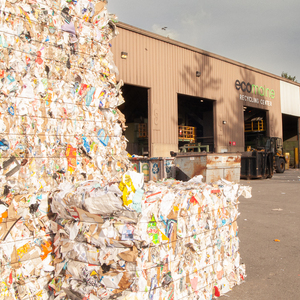
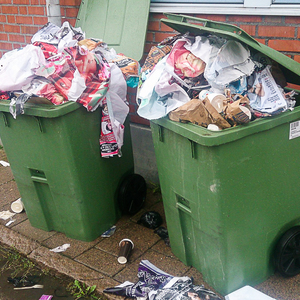
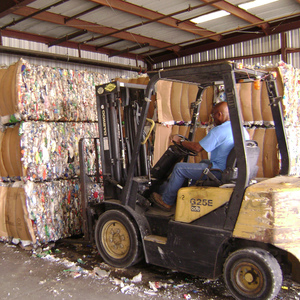
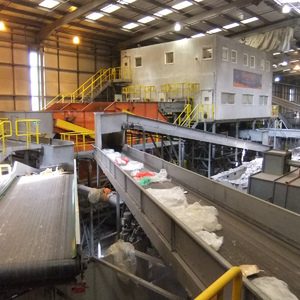






3 Comments
Taiwan has it figured out
"Taiwan has one of the world's most efficient recycling systems: it was once known as Garbage Island. Now, it has an impressive recycling rate of 55%."
https://www.globalcitizen.org/en/content/taiwan-musical-garbage-trucks-recycling/
We really went down the wrong road with commingled recycling. I toured a sorting facility in our area, and it was a hulking rube goldberg machine (the size of a building) designed to sort out materials which could have easily been sorted by the original person tossing them out. I think we have trained a generation on commingled recycling and it will be difficult to go back to the days of paper/plastic/metal/etc. And Taiwain doesn't even mix plastic types!
Unsorted recycling possible
Edmonton, Alberta has a system where households throw everything into a blue plastic bag and it is sorted at a recycling facility. It encourages recycling and creates jobs.
https://www.edmonton.ca/programs_services/garbage_waste/edmonton-waste-management-centre.aspx
Aaron
I read about that facility a few years ago. Seems to work very well. As I recall they use hockey sticks to sort the piles.
Log in or create an account to post a comment.
Sign up Log in